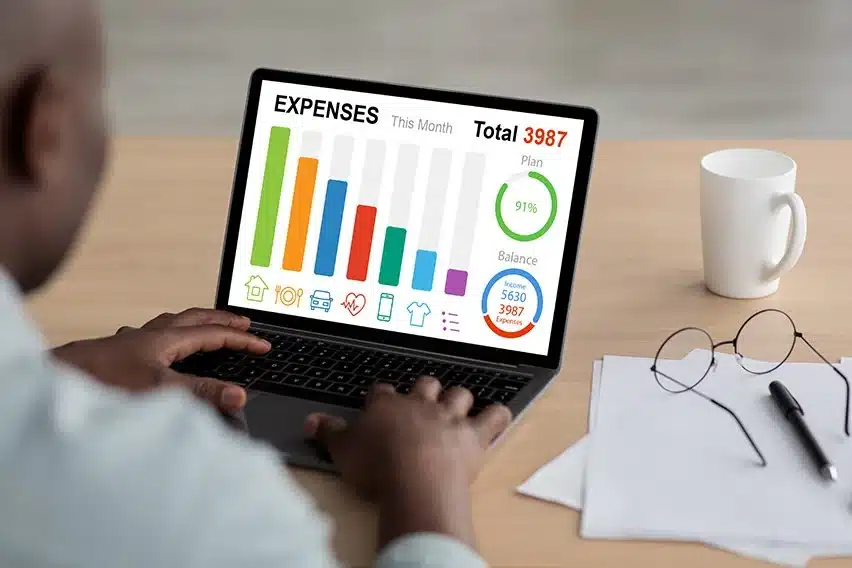Manage Your Finances : Managing personal finances effectively is a crucial skill that can lead to financial stability and a brighter future. By adopting sound financial practices, individuals can gain control over their money and make informed decisions about saving, investing, and spending. In this article, we will explore ten simple yet powerful ways to manage your finances effectively, ensuring a solid financial foundation.
1) Create A Budget
The first step towards effective financial management is creating a budget. A budget acts as a roadmap for your finances, helping you understand your income, expenses, and savings goals. Start by tracking your monthly income and fixed expenses such as rent, utilities, and loan repayments. Then allocate funds for variable expenses like groceries, entertainment, and transportation. Aim to save a portion of your income each month and adjust your budget as needed.
2) Track Your Expenses

Keeping track of your expenses is essential to understand where your money is going. Maintaining a record of every expenditure, either through a smartphone app or a spreadsheet, allows you to identify spending patterns and areas where you can cut back. By analyzing your expenses, you can make informed decisions about reducing unnecessary costs and redirecting those funds towards savings or debt repayment.
3) Prioritize Saving
Saving money is a cornerstone of effective financial management. Make it a habit to save a percentage of your income regularly. Start with a small amount and gradually increase it over time. Consider setting up an automated transfer from your checking account to a savings account each month. This strategy ensures that saving becomes a priority, and you won’t be tempted to spend the money impulsively.
4) Build An Emergency Fund

Life is full of unexpected surprises, and having an emergency fund is crucial to weathering unforeseen financial storms. Aim to set aside three to six months’ worth of living expenses in a separate savings account. This fund will provide a safety net during emergencies like medical expenses, car repairs, or sudden job loss, allowing you to handle such situations without resorting to debt.
5) Minimize Debt
Debt can be a significant burden on your financial well-being. It is important to manage and minimize debt to achieve long-term financial stability. Start by paying off high-interest debts, such as credit card balances, as quickly as possible. Prioritize making more than the minimum monthly payment to reduce interest charges. Consider consolidating your debts or negotiating lower interest rates with creditors to make repayment more manageable.
6) Use Cash Or Debit Cards
Using cash or debit cards instead of credit cards can help control spending and prevent unnecessary debt. When you pay with cash, you are more aware of the actual money leaving your wallet, making it easier to stick to your budget. If you prefer using cards, opt for a debit card linked directly to your bank account to ensure you’re spending money you already have.
7) Plan For Retirement

Retirement may seem far away, but it is essential to start planning for it early. Take advantage of employer-sponsored retirement plans, such as 401(k)s or pensions, if available. Contribute the maximum amount possible, especially if your employer offers matching contributions. Additionally, consider opening an Individual Retirement Account (IRA) or a Roth IRA to supplement your retirement savings.
8) Invest Wisely
Investing is an effective way to grow your wealth over time. Educate yourself about different investment options, such as stocks, bonds, mutual funds, and real estate. Start by investing in low-cost index funds or exchange-traded funds (ETFs) that offer broad market exposure. Consider seeking advice from a financial advisor to ensure your investment strategy aligns with your goals and risk tolerance.
9) Regularly Review And Adjust
Financial management is an ongoing process that requires periodic review and adjustment. Take time every few months to evaluate your budget, track your expenses, and assess your progress towards your financial goals. Identify areas where you can make further improvements, such as cutting back on discretionary spending or renegotiating bills to reduce expenses. Regularly monitoring your finances will help you stay on track and make necessary adjustments.
10) Continuously Educate Yourself
The financial landscape is constantly evolving, and it is crucial to stay informed about the latest trends and strategies. Read books, attend seminars, and follow reputable financial websites or blogs to enhance your financial knowledge. The more you understand about personal finance, the better equipped you will be to make informed decisions and navigate the complexities of the financial world.
Conclusion
Effectively managing your finances is within reach with the implementation of these ten simple strategies. By creating a budget, tracking your expenses, prioritizing saving, minimizing debt, and planning for retirement, you can gain control over your financial future. Additionally, using cash or debit cards, investing wisely, regularly reviewing and adjusting your financial plan, building an emergency fund, and continuously educating yourself will further enhance your financial management skills. Start implementing these steps today, and pave the way towards a more secure and prosperous financial future.
Also Read:- 10 Strategies For Building A Strong Financial Foundation
Source : Freepik

